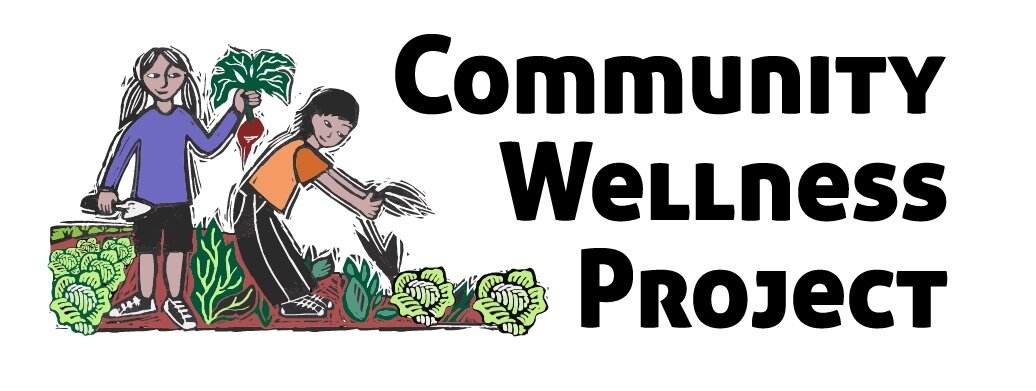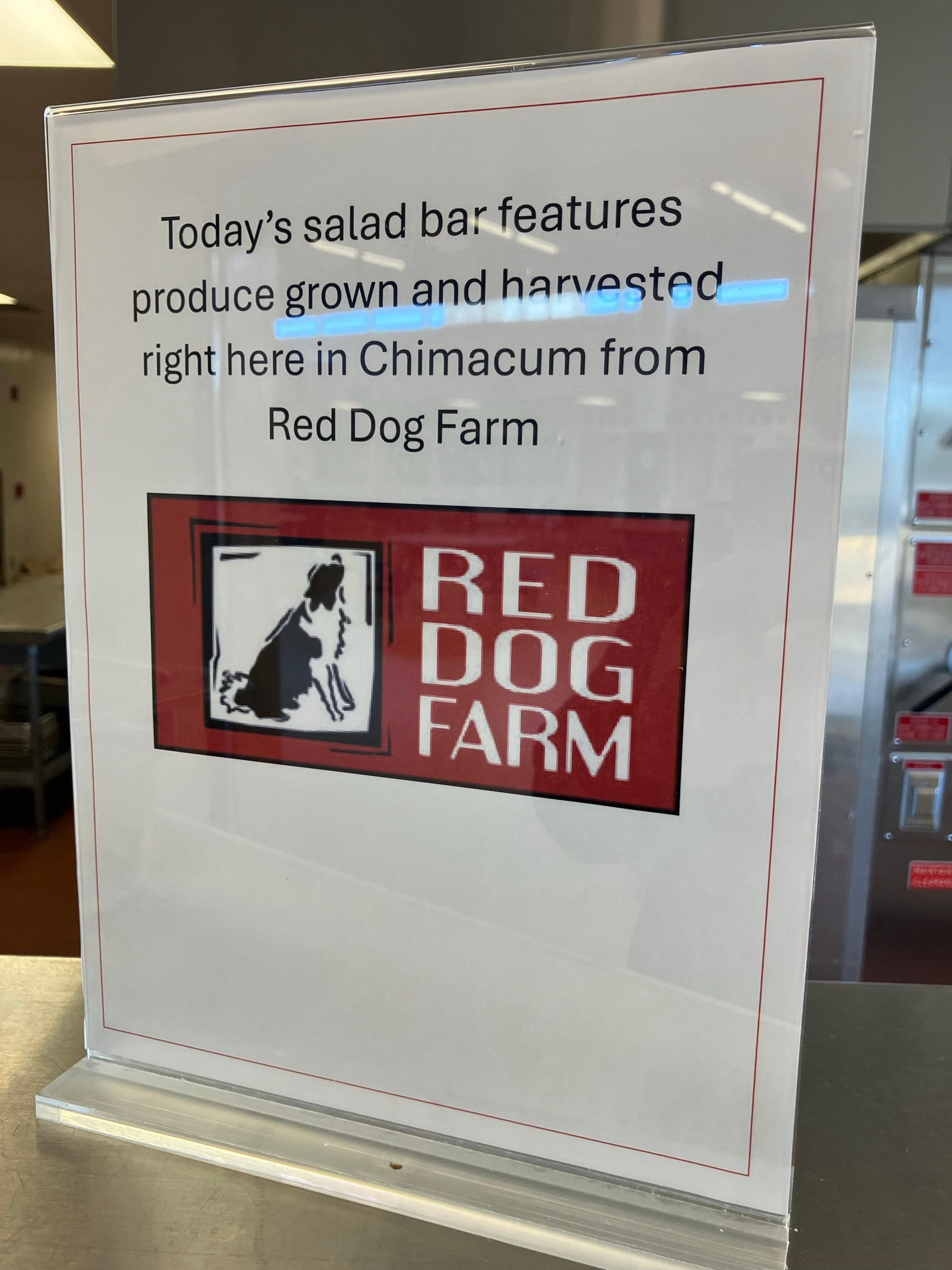5 Year Progress Report
A summary of actions and accomplishments, 2019-2024
Our premise at CWP is that in order to have a healthy, resilient, and robust local food system, we need educated participants. One of the best places to grow a population of engaged, informed, and empowered citizens is in the public schools. Our schools must be a place where students learn to grow, prepare, and eat fresh food; where they learn the principles of regenerative agriculture; learn that the resilience of communities relies on the resilience of local foodsheds; where they begin to understand that our individual choices make a difference to our bodies, our communities, and our planet. Simultaneously, our schools must incorporate locally-sourced, fresh, nutrient-dense foods in school meals, so students are best equipped to learn, grow, and thrive. We see Farm to School food services as a way to bring more justice to our food system, allowing families with food insecurity to participate, where otherwise they might be priced out. Our food producers benefit from institutional customers, and our schools benefit from local relationships with growers.
5 Year Retrospective: Accomplishments
School Gardens: cultivating basic food growing skills and food systems awareness
*Our primary focus over the past five years has been at Chimacum, the last of our K-12 districts to adopt Farm to School programming. Quilcene and Port Townsend programs were launched and incubated by CWP (Formerly DBA Jefferson Farm to School Coalition,) in the 2010’s.
Since 2019 at Chimacum:
Built and maintained beautiful teaching gardens at CES & CCP with an all-season, state-of-the-art greenhouse funded by OSPI’s “Healthy Kids, Healthy Schools” grant
Created a rotational storage crop (small) production garden at HS Garden (squash, beans, wheat, potatoes)
Installed a student-designed “Healing Garden” at entrance to CES campus, including native edible and medicinal plants
Created an exceptional program that includes
garden education–botany, soil science, biology, ecology, agriculture
organic food and seed production
plant breeding and variety trials
cooking and taste-testing featuring
local bread, cheese, honey, and veggies
Pico de Gallo
Potato-Leek Soup
3-Sisters stew (corn/beans/squash)
Caesar salad
Applesauce and fruit leathers (using fruit donated by Gleaners)
Herbed yogurt dip with walking-stick salad
Vegetable soup
institutional vermicompost of kitchen & cafeteria food waste
ecosystem restoration, water conservation & watershed stewardship (invasive plant removal, native prairie restoration, and riparian zone restoration)
Since 2019 at Quilcene & Port Townsend, we have supported their school gardens with cash donations for educator contracts, materials, and supplies, purchased and shared NGSS-aligned garden curriculum, supported professional development for garden educators through a Community of Practice
Farm to Cafeteria: laying a foundation of nutrition for a lifetime of healthy habits
Recruited the first Farm to School food services director at Chimacum
Successfully incorporated specific farm-to-cafeteria language in the permanent job description
Supported the school district’s grant writing and planning for WSDA local-purchasing grants (CSD has been awarded $30K+ in local purchasing grants to date), equipment grants, and culinary arts classroom remodel (recently received notice of $113K OSPI career and technical education award for renovation of Culinary Arts classroom to be the commissary kitchen for the food truck!)
Wrote and implemented a USDA Farm to School grant that allowed for kitchen tools, training, and extra staff time to support transition to a Farm to School model of food service
Local food regularly included in scratch-cooked school meals
Served on the Chimacum School District Wellness Committee to ensure that Farm to School vision and values are held in policy and procedures review and implementation
Career & Technical Education: preparing the next generation of growers, food producers, and chefs
Culinary Arts
Provided bridge funding ($25K) for one year of Culinary Arts CTE education at Chimacum while the district worked to build a new framework eligible for enhanced state funding
○ School-based FEED Truck (Food, Education & Enterprise Development)
With funds from a private gift, we were able to purchase an existing food truck with L&I approval, and retrofit it for use as a school-based enterprise
■ Leveraged FEED Truck to win $140K in career-connected learning funds from the State Employment Securities Department
■ Updated fire suppression system, updated hot water heater, replaced generator, removed old equipment, added new top-of-the-line flat top grill and under-mounted refrigerator, added new battery
■ Planned and purchased small-wares, panini presses, paper service products
■ Worked with others across the state to develop accounting and tracking systems
■ Culinary students created and beta tested recipes for use in the truck
■ Have started operating at community, school, and Rivals sports events
High school students working on a weekly basis in school kitchen, extending kitchen capacity for scratch cooking and giving students real world experience in a commercial/institutional setting
Attend regional Work Force Development initiatives as an advocate for Jefferson County Schools
Food Systems Equity and Access: working to ensure all members of our community have access to fresh, locally grown food. We believe the schools are an often unrecognized piece of the food equity and access puzzle.
Connected schools with Olympic Peninsula Farmers Fund (OPFF)
Schools (in addition to Food Banks,) became the recipients for OPFF contract repayments
Coordinated food security projects with
Olympic Peninsula YMCA
Jefferson County Food Bank Association
WSU Jefferson & Clallam Extensions
SNAP-Ed
Food Bank Growers
COVID-19 Pandemic Food Security special projects:
Neighbor Loaves
Little Free Pantries (self-serve, “take what you need, leave what you can”) at Chimacum Grange & Irondale Church
Peanut Butter & Jelly (locally made) + Prepared Meals by local chefs, in partnership with YMCA distributed weekly to approximately 78 food insecure families, along with a box of food donated by Jefferson County Food Banks, over 16 weeks total in winter of 2021. We estimate this totaled somewhere between 15,000 and 20,000 pounds of food during the height of the COVID-19 food system/supply chain crisis.
Participated in the Inter-Governmental Collaborative for City/County/Port/PUD and community stakeholders to prioritize federal COVID-19 recovery funds and chart a way forward for collaborative food systems investment
Attend a JCCF-hosted monthly meetup of food security organizations that network, cross-pollinate ideas, collaborate, and synergize
Collaborate with neighbors in Clallam County on regional food security projects, including Peninsula Food Coalition, WSU Clallam County, Sisterland Farm, and Clallam County Sheriff’s Department/Clallam Department of Emergency Management
Network with regional initiatives like Puget Sound Restoration Fund, Blue Carbon/Green Fields, North Olympic Development Council, and Strait Ecosystem Restoration Network













